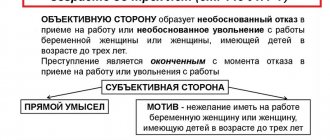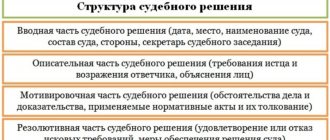1. Persons participating in the proceedings on an administrative offense have the right to submit petitions that are subject to mandatory consideration by the judge, body, or official in charge of which the case is pending.
2. The petition is submitted in writing and is subject to immediate consideration. The decision to refuse to satisfy the petition is made by the judge, body, or official in charge of the administrative offense case, in the form of a ruling.
Article 24.4. Petitions
Decision of the Supreme Court of the Russian Federation dated January 10, 2019 N 81-AAD18-21 As stated by the Constitutional Court of the Russian Federation in the ruling dated July 17, 2012 N 1339-O, by virtue of Part 1 of Article 24.4 of the Code of the Russian Federation on Administrative Offenses, statements made by participants in the proceedings Petitions regarding an administrative offense are subject to mandatory consideration by the judge, body, or official in charge of which the case is pending, which, however, does not imply their mandatory satisfaction. At the same time, as the Constitutional Court of the Russian Federation has repeatedly indicated in its decisions, if the missed deadline was due to valid reasons, such petitions are subject to satisfaction by the court (rulings of December 25, 2008 N 990-О-О, of April 21, 2011 N 465-О-О, dated June 21, 2011 N 749-О-О, dated September 29, 2011 N 1066-О-О, etc.).
Decision of the Supreme Court of the Russian Federation dated 02/06/2019 N 43-AAD19-1
As indicated by the Constitutional Court of the Russian Federation in the ruling of July 17, 2012 N 1339-O, by virtue of Part 1 of Article 24.4 of the Code of Administrative Offenses of the Russian Federation, petitions submitted by participants in proceedings in a case of an administrative offense are subject to mandatory consideration by a judge, body, official, in which this case is being processed, which, however, does not imply their mandatory satisfaction. At the same time, as the Constitutional Court of the Russian Federation has repeatedly indicated in its decisions, if the missed deadline was due to valid reasons, such petitions are subject to satisfaction by the court (rulings of December 25, 2008 N 990-О-О, of April 21, 2011 N 465-О-О, dated June 21, 2011 N 749-О-О, dated September 29, 2011 N 1066-О-О, etc.).
Ruling of the Supreme Court of the Russian Federation dated January 23, 2019 N 8-AAD19-1
Based on the foregoing, guided by Articles 24.4 and 29.12 of the Code of the Russian Federation on Administrative Offenses, the judge of the Supreme Court of the Russian Federation determined: the case is based on the complaint of defense attorney S.V. Zhosan, acting on the basis of a power of attorney in the interests of S.V. Chekalova, against the decision of the deputy head of the Department control of land and sea weapons, military communications equipment of the Federal Antimonopoly Service dated June 4, 2021 N 4-14.55-716/00-26-18 and the decision of the judge of the Frunzensky District Court of Yaroslavl dated November 29, 2021 N 12-455/ 2018, issued in the case of an administrative offense provided for in Part 2.1 of Article 14.55 of the Code of Administrative Offenses of the Russian Federation, against the General Director of PJSC Yaroslavl Shipbuilding Plant Chekalova S.V., be transferred for consideration on the merits to the Kostroma Regional Court.
Ruling of the Supreme Court of the Russian Federation dated January 23, 2019 N 8-AAD19-2
Based on the foregoing, guided by Articles 24.4 and 29.12 of the Code of the Russian Federation on Administrative Offences, the judge of the Supreme Court of the Russian Federation determined: the case was based on a complaint by an official of the Federal Antimonopoly Service O.V. Bogdanova, who issued a resolution imposing an administrative penalty, against the decision of the judge of the Frunzensky District Court Yaroslavl dated November 27, 2021 N 12-457/2018 to be transferred for consideration on the merits to the Kostroma Regional Court.
Decision of the Supreme Court of the Russian Federation dated January 30, 2019 N 71-AAD18-2
As indicated by the Constitutional Court of the Russian Federation in the ruling of July 17, 2012 N 1339-O, by virtue of Part 1 of Article 24.4 of the Code of Administrative Offenses of the Russian Federation, petitions submitted by participants in proceedings in a case of an administrative offense are subject to mandatory consideration by a judge, body, official, in which this case is being processed, which, however, does not imply their mandatory satisfaction. At the same time, as the Constitutional Court of the Russian Federation has repeatedly indicated in its decisions, if the missed deadline was due to valid reasons, such petitions are subject to satisfaction by the court (rulings of December 25, 2008 N 990-О-О, of April 21, 2011 N 465-О-О, dated June 21, 2011 N 749-О-О, dated September 29, 2011 N 1066-О-О, etc.).
Decision of the Supreme Court of the Russian Federation dated February 14, 2019 N 5-AAD19-1
As indicated by the Constitutional Court of the Russian Federation in the ruling of July 17, 2012 N 1339-O, by virtue of Part 1 of Article 24.4 of the Code of Administrative Offenses of the Russian Federation, petitions submitted by participants in proceedings in a case of an administrative offense are subject to mandatory consideration by a judge, body, official, in which this case is being processed, which, however, does not imply their mandatory satisfaction. At the same time, as the Constitutional Court of the Russian Federation has repeatedly indicated in its decisions, if the missed deadline was due to valid reasons, such petitions are subject to satisfaction by the court (rulings of December 25, 2008 N 990-О-О, of April 21, 2011 N 465-О-О, dated June 21, 2011 N 749-О-О, dated September 29, 2011 N 1066-О-О, etc.).
Decision of the Supreme Court of the Russian Federation dated February 14, 2019 N 53-AAD19-1
As indicated by the Constitutional Court of the Russian Federation in the ruling of July 17, 2012 N 1339-O, by virtue of Part 1 of Article 24.4 of the Code of Administrative Offenses of the Russian Federation, petitions submitted by participants in proceedings in a case of an administrative offense are subject to mandatory consideration by a judge, body, official, in which this case is being processed, which, however, does not imply their mandatory satisfaction. At the same time, as the Constitutional Court of the Russian Federation has repeatedly indicated in its decisions, if the missed deadline was due to valid reasons, such petitions are subject to satisfaction by the court (rulings of December 25, 2008 N 990-О-О, of April 21, 2011 N 465-О-О, dated June 21, 2011 N 749-О-О, dated September 29, 2011 N 1066-О-О, etc.).
Resolution of the Supreme Court of the Russian Federation dated February 12, 2019 N 83-AD19-2
When considering the case, the judge of the regional court petitioned for the summons and interrogation of the named persons, Demchenko S.E. in accordance with Article 24.4 of the Code of the Russian Federation, he did not report administrative offenses. The arguments of the complaint are that in the actions of Demchenko S.E. there is no corpus delicti of an administrative offense, since the requirements of paragraph 11.1 of the Traffic Rules were violated by Nosovets A.N., are subject to rejection, since when considering a case of an administrative offense, a judge, body, official resolves the issue of guilt in committing an administrative offense exclusively in relation to the person brought to administrative responsibility. In this regard, a resolution or decision in a case of an administrative offense cannot contain conclusions about the guilt of other persons against whom proceedings were not carried out.
Determination of the Supreme Court of the Russian Federation dated February 28, 2019 N 30-AAD19-1
Based on the above, guided by Articles 24.4 and 29.12 of the Code of the Russian Federation on Administrative Offences, the judge of the Supreme Court of the Russian Federation determined: the case on the complaint of A.T. Botashev on the resolution of the senior traffic police inspector of the State Traffic Safety Inspectorate of the Ministry of Internal Affairs of Russia "Adyge-Khablsky" dated November 11, 2021 N 18810009180000135833 and the decision of the judge of the Adyge-Khablsky District Court of the Karachay-Cherkess Republic dated December 5, 2021, issued in the case of an administrative offense provided for in part 2 of Article 12.13 of the Code of the Russian Federation on Administrative Offences, in relation to Botashev A.T., shall be transferred for consideration on the merits to the Stavropol Regional Court.
Resolution of the Supreme Court of the Russian Federation dated February 14, 2019 N 41-AD19-2
As indicated by the Constitutional Court of the Russian Federation in the ruling of July 17, 2012 N 1339-O, by virtue of Part 1 of Article 24.4 of the Code of Administrative Offenses of the Russian Federation, petitions submitted by participants in proceedings in a case of an administrative offense are subject to mandatory consideration by a judge, body, official, in which this case is being processed, which, however, does not imply their mandatory satisfaction. At the same time, as the Constitutional Court of the Russian Federation has repeatedly indicated in its decisions, if the missed deadline was due to valid reasons, such petitions are subject to satisfaction by the court (rulings of December 25, 2008 N 990-О-О, of April 21, 2011 N 465-О-О, dated June 21, 2011 N 749-О-О, dated September 29, 2011 N 1066-О-О, etc.).
Decision of the Supreme Court of the Russian Federation dated February 21, 2019 N 56-AAD19-1
As indicated by the Constitutional Court of the Russian Federation in the ruling of July 17, 2012 N 1339-O, by virtue of Part 1 of Article 24.4 of the Code of Administrative Offenses of the Russian Federation, petitions submitted by participants in proceedings in a case of an administrative offense are subject to mandatory consideration by a judge, body, official, in which this case is being processed, which, however, does not imply their mandatory satisfaction. At the same time, as the Constitutional Court of the Russian Federation has repeatedly indicated in its decisions, if the missed deadline was due to valid reasons, such petitions are subject to satisfaction by the court (rulings of December 25, 2008 N 990-О-О, of April 21, 2011 N 465-О-О, dated June 21, 2011 N 749-О-О, dated September 29, 2011 N 1066-О-О, etc.).
Deadlines
In these cases, the issue of time is very important.
Thus, a protocol must be drawn up immediately at the scene of the offense. If collection of missing information is required, this process can be delayed for up to 2 days.
If the protocol is drawn up in your absence, subject to proper notice, a copy must be sent to you within 3 days.
The total period for consideration of a case is 15 days, in court - 2 months, with the exception of certain categories of cases (for example, in the field of electoral law).
Determination of refusal to satisfy a petition in an administrative case: appeal under the CAS RF
A refusal to satisfy a petition, which is formalized by a ruling that does not entail the termination of the case, namely: a ruling regarding preliminary protective measures, a refusal of a petition to consolidate proceedings, a refusal of a petition to separate the case into separate proceedings - is appealed taking into account the following features.
According to paragraph 64 of Resolution No. 36, in order to carry out appeal proceedings within a reasonable time, the following are sent to a higher court:
- inventory of documents on the case;
- original complaint;
- the original submission of the prosecutor (if it served as the basis for challenging the determination);
- a court ruling that is being challenged;
- copies of materials necessary for consideration of the complaint, certified by the court sending the documents to the higher court).
The document used to appeal the determination may be:
- private complaint;
- appeal;
- prosecutor's presentation.
After the appeal of the ruling is completed, the material that was compiled based on the complaint or presentation is attached to the case (clause 64 of resolution No. 36).
IMPORTANT! It should be borne in mind that the determination is announced immediately after it is made. If the reason for issuing a ruling is procedurally complex, then the court may postpone the preparation of the full text of this document and announce only the operative part. The said postponement cannot exceed 5 days from the date of announcement of the operative part. In this case, the operative part is signed by the judge (judges) and attached to the case (clause 63 of resolution No. 36).
Pre-trial appeal
Some people think that it is better to go straight to court with their demands. But is this really so?
The Themis Institute, of course, is the latest and most important authority. However, we should not forget about the possibility of a peaceful pre-trial appeal.
In many cases, when officials issue a protocol on an offense, this means that further out-of-court proceedings are pending in the appropriate authority. In this case, you will be assigned a time and place for the hearing of the case, where you must arrive and defend your point of view. It is advisable to present all arguments in writing in the form of objections. This should be done on paper, and not orally, since all materials may subsequently be sent to court for further appeal.
For reliability, you can make an audio recording of the proceedings, but before that you need to make an announcement that a recording is being made and indicate information about the equipment. Only in this case can the file be used as evidence in court.
If the above methods did not help you defend your rights, and the decision of the relevant authority was not made in your favor, then it makes sense to go to court.
Exceptional circumstances
If one of the following initial data is present, then the case is not initiated, and the one started must be terminated at any stage:
- there is no event (for example, there was no actual accident, but the car was damaged as a result of a falling stone);
- there is no composition (there is no object/subject/objective/subjective side of the violation: the person is under 16 years of age);
- emergency situation (the accident was committed to prevent a collision with a pedestrian);
- act of amnesty on release from punishment;
- termination of the law regulating liability for violation;
- the statute of limitations has expired;
- if there is already an act issued on the fact of the violation or a criminal case has been initiated;
- death of the culprit individual/bankruptcy of a legal entity;
- others.
I would like to note that the investigation of these cases is a difficult and time-consuming procedure. Whatever sample objection to a protocol on an administrative offense you find on the Internet, it is clear that it needs to be reworked to suit the specific circumstances of your case. If difficulties arise, it is always better to seek help from a professional lawyer.




